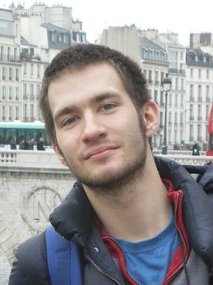Parashat Vayera
In this week’s Torah portion Vayera the Eternal commands Moses to inform the Israelites that their bondage is about to end. Moses is supposed to convey the following message to them:
I am the [Eternal]. I will free you from the labors of the Egyptians and deliver you from their bondage. I will redeem you with an outstretched arm and through extraordinary chastisements. And I will take you to be My people, and I will be your God. And you shall know that I, the [Eternal], am your God who freed you from the labors of the Egyptians. (Exodus 6:6-7.)
Shemot Rabbah, the collection of Midrashim containing explanations regarding the Book of Exodus, draws our attention to four verbs: free, deliver, redeem and “take you to be My people” – which are used in this passage to describe the liberation of the Israelites by the Eternal. According to the explanation presented in this collection of Midrashim, the four cups of vine which we drink during the Passover Seder are supposed to remind us of the promise regarding the four-stage liberation made to the Israelites by the Eternal. Every year, as we drink the four cups of wine, they remind us of the promise which was fulfilled by the Eternal.
 In our Parashat the Israelites initially did not pay attention to the words of the Eternal:
In our Parashat the Israelites initially did not pay attention to the words of the Eternal:
But when Moses told this [the Eternal’s pledge] to the Israelites, they would not listen to Moses, their spirits crushed by cruel bondage.(Exodus 6:9.)
The Eternal, not discouraged by the Israelites’ lack of enthusiasm, commanded Moses to go to the Pharaoh and request that he frees his people. The Pharaoh was supposed to be convinced by the plagues inflicted upon Egypt. Midrash Tanchuma ascribed a different significance to the plagues: They were supposed to free the Israelites from the hard labor and the oppression inflicted on them by the Egyptians. The first plague, the transformation of the Nile’s waters into blood, was supposed to convince the Pharaoh to revoke his prohibition and allow Israelite women to use the mikveh. The second plague, the frogs, was supposed to force the Pharaoh to take back the order forcing the Israelites to bring crawling creatures to the Egyptians, since such creatures were an abomination to the Israelites. The third plague, lice, was supposed to convince the Pharaoh to revoke the order forcing the Israelites to clean the streets. The fourth plague, wild animals, was supposed to prompt the Pharaoh to prohibit forcing the Israelites to partake in hunting for wild animals. The fifth plague, boils, was supposed to convince the Pharaoh to stop forcing the Israelites to carry hot objects.
According to Midrash Tanchuma, the aim of all the other plagues was also to force the Pharaoh to revoke various decrees which were making the Israelites’ lives miserable. This Midrash seems to suggest that the Egyptian plagues were supposed to convince the Pharaoh to set the Israelites free, as well as to convince the Israelites to put trust in the Eternal’s promise. The Israelites were supposed to learn to trust the Eternal by noticing how the quality of their lives was gradually improving.
What can we learn from such an interpretation of the Egyptian plagues?
That sometimes, when we are overwhelmed by numerous everyday problems, we might overlook small changes foretelling that better times are coming. During this winter Shabbat I encourage you to take a look at the problems which have been at the center of your attention for a long time now. Who knows, perhaps it will turn out that the worst is already behind you?
Shabbat Shalom!
Mati Kirschenbaum

Translated from Polish by: Marzena Szymańska-Błotnicka

Dodaj komentarz